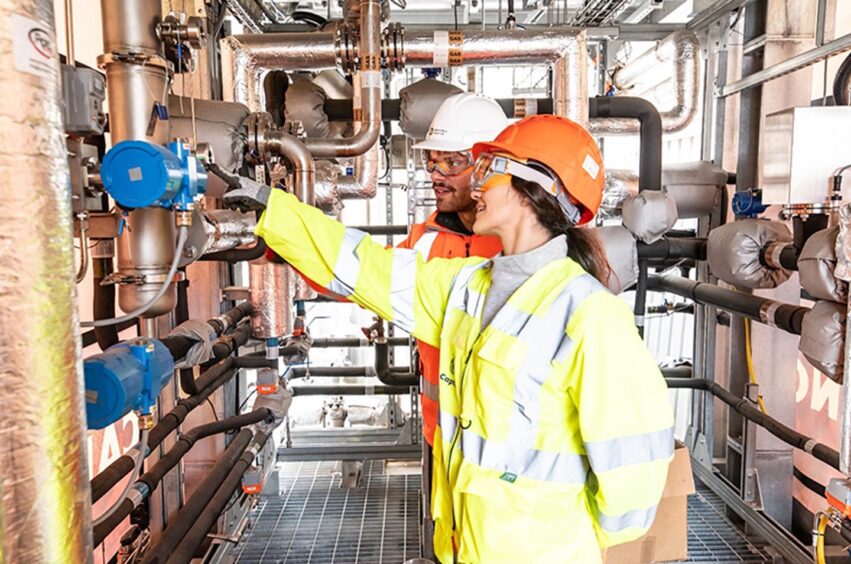
Leeds-based C-Capture, a developer of carbon dioxide (CO2) removal technology, announced on May 9 that it had started a carbon capture trial in the cement manufacturing sector in partnership with Heidelberg Materials UK.
The trial is taking place at Heidelberg Materials’ cement manufacturing plant in Ketton in the East Midlands. It forms part of C-Capture’s national XLR8 carbon capture and storage (CCS) project aimed at accelerating the deployment of low-cost carbon capture for hard-to-abate industries.
C-Capture said a carbon capture solvent compatibility unit (CCSCU) that it had designed and built together with Wood – an XLR8 CCS project partner – had been installed at the Heidelberg Materials cement plant.
The unit, which is already operational, will be used to remove CO2 from flue gas emissions produced during the cement manufacturing process.
C-Capture hopes that the trial will prove the viability of its proprietary carbon capture technology for decarbonising cement manufacturing.
The company said that its technology differs from other commercially available carbon capture approaches because it is based on “fundamentally different chemistry” and does not rely on the use of amines. This also makes its technology “environmentally benign” and allows C-Capture to offer it at a lower cost, according to the company.
Additionally, C-Capture touted the technology’s ability to withstand the “challenging” flue gases produced by hard-to-abate sectors in its announcement.
Taking the carbon out of cement
Decarbonising the cement industry is considered crucial to the energy transition as it is one of the most energy- and carbon-intensive industries globally.
According to the US Department of Energy (DoE), global cement production accounted for 8% of total CO2 emissions in 2021 and output is expected to grow by more than 10% by 2050. Cutting emissions is therefore considered a pressing issue for the industry.
In late 2023, the International Energy Agency (IEA) warned in its annual Breakthrough Agenda Report that the cement industry was not on track to achieve net zero emissions by 2050 and said total emissions needed to fall by around 20% by 2030. This would be enabled in part by CCUS, according to the agency.
The calls to decarbonise the industry have given rise to the concept of green cement, with industry players exploring various ways to cut emissions. These efforts are at an early stage, however, and would need to be scaled significantly in the coming years.
Heidelberg Materials is among those leading the charge. The company has projects underway to build CCS or CCUS capacity at various cement plants globally and announced in November 2023 that it had begun producing carbon-captured, net-zero cement at its plant in Brevik, Norway, which it said was a world first.
The start of the trial with C-Capture represents the latest step to roll out CCS across more of Heidelberg Materials’ operations.
“Carbon capture is a critical part of our strategy to decarbonise cement production and essential if we are to reach net zero and help our customers achieve their own decarbonisation goals,” stated Heidelberg Materials UK’s CEO, Simon Willis.
“Our venture with C-Capture is another example of our commitment to developing new technologies and, if successful, has the potential to be rolled-out at other sites across the Heidelberg Materials Group.”
Taking decarbonisation further
For C-Capture, cement is not the only industry it is trying to help decarbonise. The company said that as well as cement, the XLR8 CCS project was aimed at demonstrating the compatibility of its carbon capture technology with two other hard-to-decarbonise industries – energy from waste and glass manufacturing.
Under the project, six carbon capture trials will be delivered in total across the three industries.
Indeed, C-Capture said it had already achieved the UK’s first demonstration of a carbon capture technology for the mainstream commercial glass manufacturing industry.
This was achieved with a trial at Pilkington UK’s glass manufacturing site in St Helens, which remains underway.
Recommended for you
